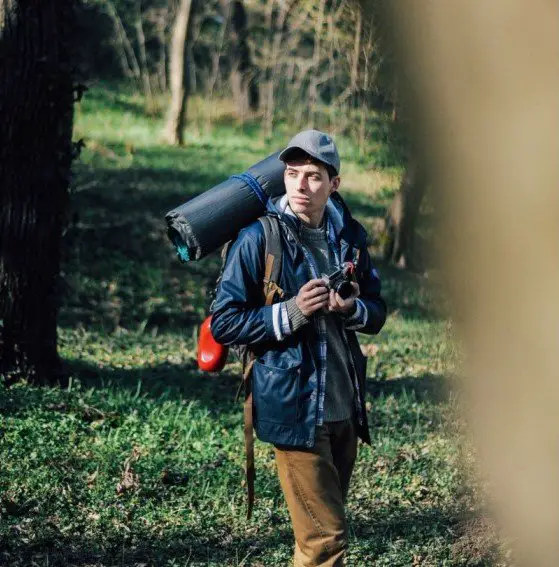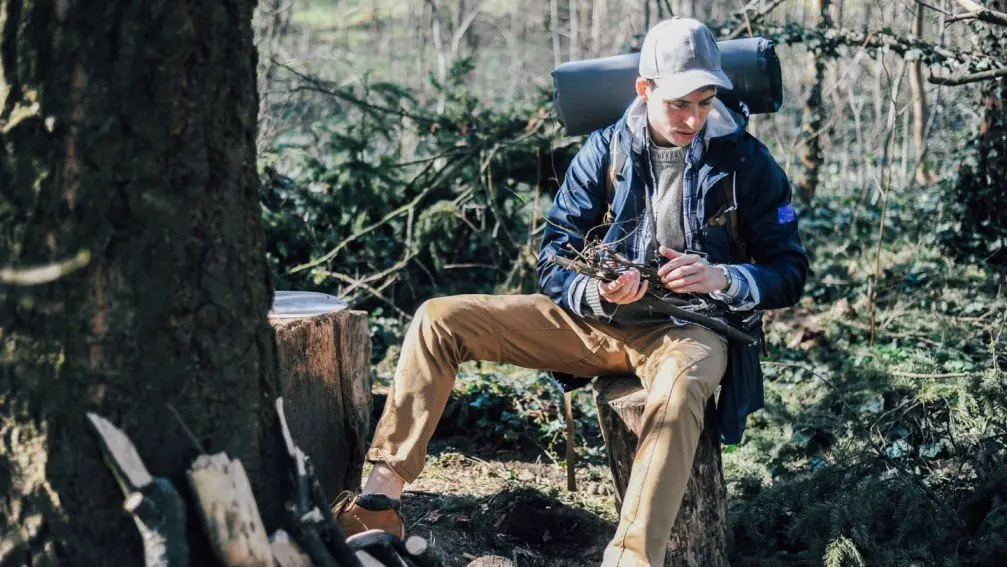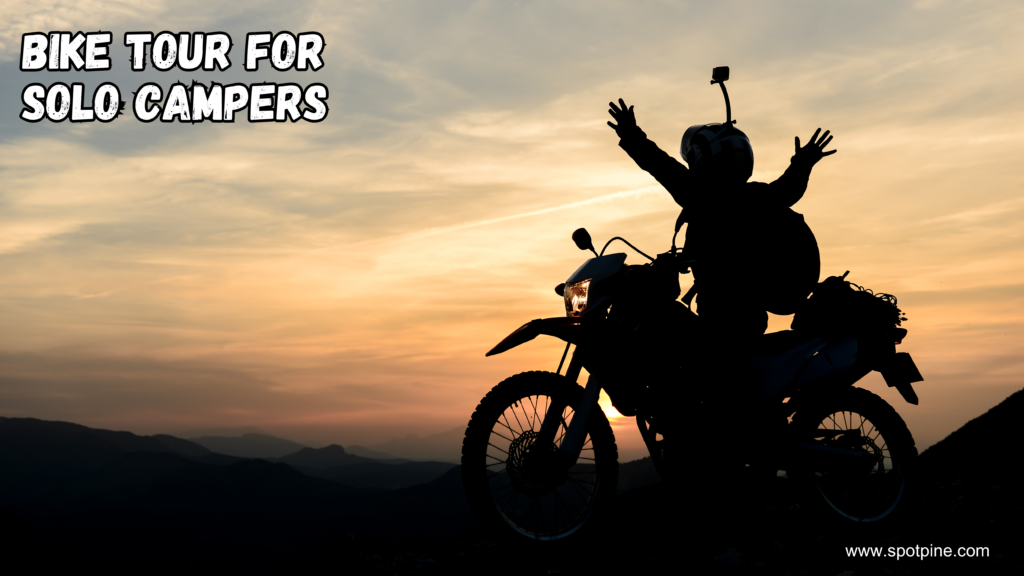When camping alone, ensure you have the necessary equipment and supplies to stay safe. Camping alone can be a thrilling and rewarding experience for those seeking solitude and adventure in the great outdoors.
However, it also comes with its own set of risks and challenges. Whether you are an experienced camper or a beginner, preparing for a camping alone trip requires careful planning and consideration of various factors. From selecting the right gear to choosing a suitable campsite, there are several steps that you can take to ensure a safe and enjoyable experience.
We will discuss what to do when camping alone to make the most of your journey while staying protected against potential hazards.
Choosing The Right Gear
Choosing the right gear is crucial for a safe and enjoyable camping experience. When selecting a tent, make sure it’s durable and spacious enough for you. A good sleeping bag that’s warm and comfortable can make all the difference in the world. Look for one with good insulation and a comfortable inner lining. Your backpack should be lightweight, but sturdy enough to hold all your gear. A backpack with multiple compartments can help keep your belongings organized. Finally, carry a water filter to ensure safe and easy access to drinking water. Don’t compromise on quality when it comes to gear, because they are essential for your well-being.
Plan Your Route And Stick To It
As a solo camper, it is crucial to plan your route beforehand and stick to it. Ensure that you have a map and compass with you, and know how to use them. It is also wise to carry a GPS device as a backup. Keep track of your progress and mark significant landmarks along the way to avoid getting lost. Inform someone of your route and expected return time. It is better to err on the side of caution and let someone know your whereabouts in case of an emergency. Stay on marked trails to avoid getting lost and to minimize your impact on the environment. Respect the local wildlife and avoid disturbing their habitats. Solo camping can be a rewarding experience, but it requires careful planning and preparation.
Setting Up Camp
Before setting up camp, it’s crucial to check for hazards such as uneven ground, low-hanging branches, and nearby bodies of water. Once you’ve found a safe spot, clear the area of any rocks, sticks, and other debris. When setting up your campsite, make sure to follow Leave No Trace principles and avoid damaging the environment. As for campfire safety, ensure that fires are permitted and follow all regulations. Keep the fire contained in a designated fire ring or pit and never leave the fire unattended. Always have a source of water nearby to extinguish the fire completely before leaving the site.
Staying Safe
While camping alone, encountering wildlife can be a thrilling experience. However, it is important to stay safe and be prepared. Keep a first aid kit handy and familiarize yourself with emergency signaling techniques. It is also important to avoid common camping mistakes such as leaving food out or not properly storing it. When it comes to wildlife encounters, remember to keep a safe distance and never approach them. If possible, make noise to alert them to your presence and carry bear spray. Additionally, it is important to have a plan in case of unexpected emergencies. Always inform someone of your camping location and expected return time.
Preparing Meals
As a solo camper, preparing meals is an essential task to ensure a safe and comfortable trip. Make sure to pack the necessary camping gear for cooking, such as a portable stove or campfire grill, cookware, and utensils. Store your food in a secure container or food storage bag to prevent attracting animals into your campsite.
Bring enough water for cooking and drinking, or identify a nearby water source before setting up camp. You can also bring a water filtration device to purify water from streams and lakes. To keep meals simple, plan out easy-to-make recipes and bring non-perishable items such as canned goods, protein bars, and dehydrated meals. Enjoy a safe and satisfying meal while enjoying the great outdoors!

Read: How to Camping Alone in Bad Weather?
Entertainment And Activities
Camping alone can be an exciting and fulfilling experience. When it comes to entertainment and activities, there are numerous options available. Hiking and exploring the wilderness around your campsite is an excellent way to spend your time, appreciate nature, and get some exercise. Additionally, reading a book while sitting next to a bonfire or journaling about your experiences can be calming and rewarding. Once nighttime arrives, you can stargaze, listen to the sounds of wildlife, and observe the campfire. Remember to bring a deck of cards or board game to play with fellow campers or to occupy your time if you prefer spending a cozy night in your tent.
Leave No Trace
When heading out camping alone, it’s important to have a deep respect for nature and the environment so that future generations can also enjoy the great outdoors. One of the most important principles in this regard is the “pack it in, pack it out” mantra. This means that you should take all your waste with you when you leave, including food scraps, plastic wrappers, aluminum cans, and even cigarette butts. Everything that you bring into the woods with you should leave with you.
Proper disposal of waste is another crucial aspect of responsible camping. You can’t just toss your garbage in the bushes. Human waste should be disposed of in a cathole that’s at least 200 feet away from any sources of water. All other garbage must be bagged, sealed, and transported out of the campsite.
Finally, it’s important to respect wildlife and nature. Don’t pollute streams or lakes. Respect animals and give them their space. Never store food or snacks in your tent as it can attract animals. Keep your campsite clean and tidy all the time.
| Do’s | Don’ts |
| Properly dispose of human waste in catholes at least 200 feet away from any water sources. | Don’t pollute water sources by dumping waste directly into them. |
| Bag and transport all garbage out of the campsite. | Don’t leave any type of garbage in the campsite. |
| Respect animals by keeping a safe distance and not feeding them. | Don’t approach animals too closely, especially predators like bears. |
Credit: www.outsideonline.com
Remember that camping alone can be a life-changing experience. It allows you to connect with nature, reflect on your thoughts, and push your limits. However, it’s important to be safe and prepared before embarking on your adventure. Research the area, pack the essentials, and always let someone know your plans.
With a little bit of planning and common sense, you can enjoy the benefits of solo camping while staying safe and getting the most out of your time in the great outdoors.
FAQs:
Is It Okay To Go Camping Alone?
Yes, it is okay to go camping alone. However, it is important to take necessary precautions and plan accordingly. This includes choosing a safe and well-known campsite, informing someone of your plans and location, bringing necessary supplies and equipment, and being aware of your surroundings.
How Do You Pass Time Camping Alone?
To pass time camping alone, bring books, a camera, and a journal to document your thoughts and experiences. Activities like hiking, fishing, or stargazing can also keep you occupied. Embrace the solitude and use the time for introspection and relaxation.
What To Do At Night When Camping Alone?
When camping alone at night, it’s important to prioritize safety. Bring a flashlight, keep a fire going, and be aware of your surroundings. Stay entertained by stargazing, reading, or listening to music. Most importantly, relax and enjoy the peacefulness of being alone in nature.
How To Camp As A Single Woman?
As a single woman, follow these guidelines for safe camping:
1. Choose a well-lit and public camping area.
2. Keep your valuables safe and secure.
3. Notify a loved one of your location and expected return date.
4. Trust your instincts and avoid suspicious people or activities.
5. Consider taking a self-defense class beforehand.



